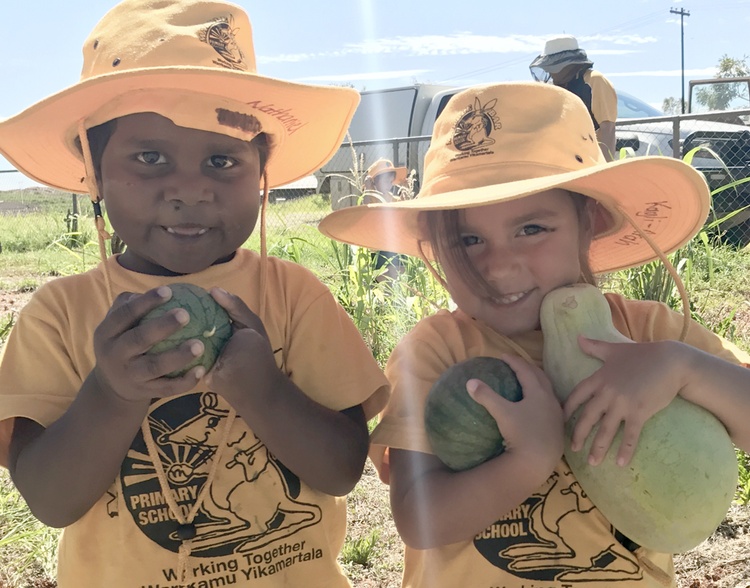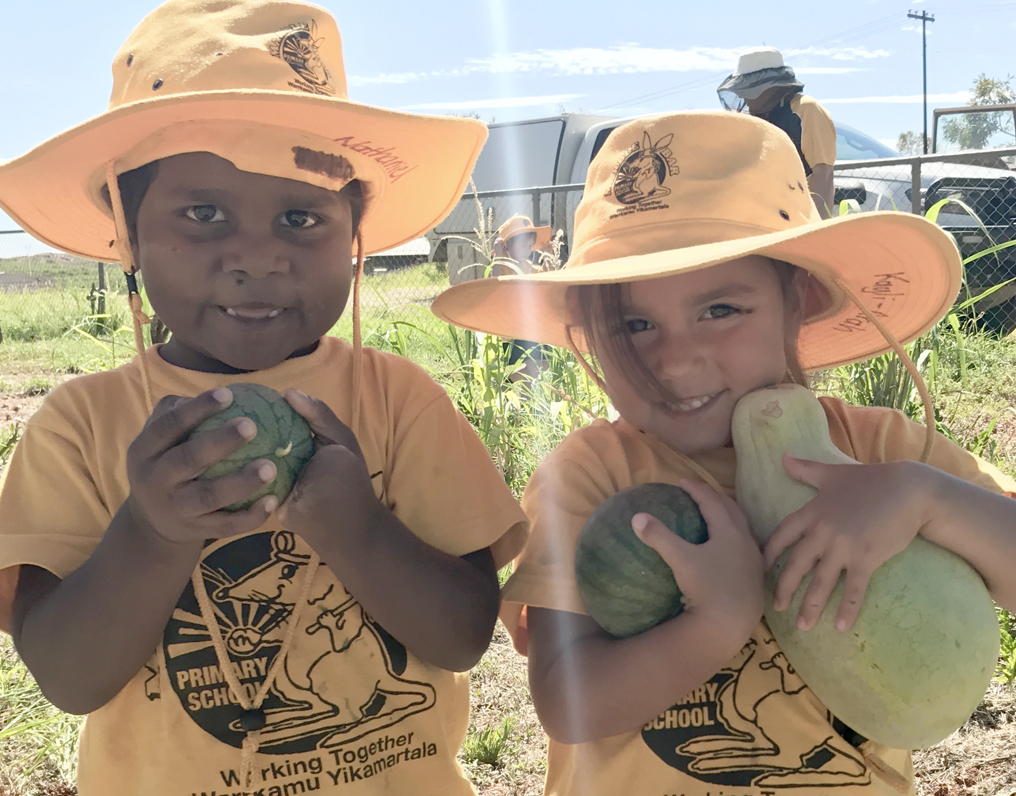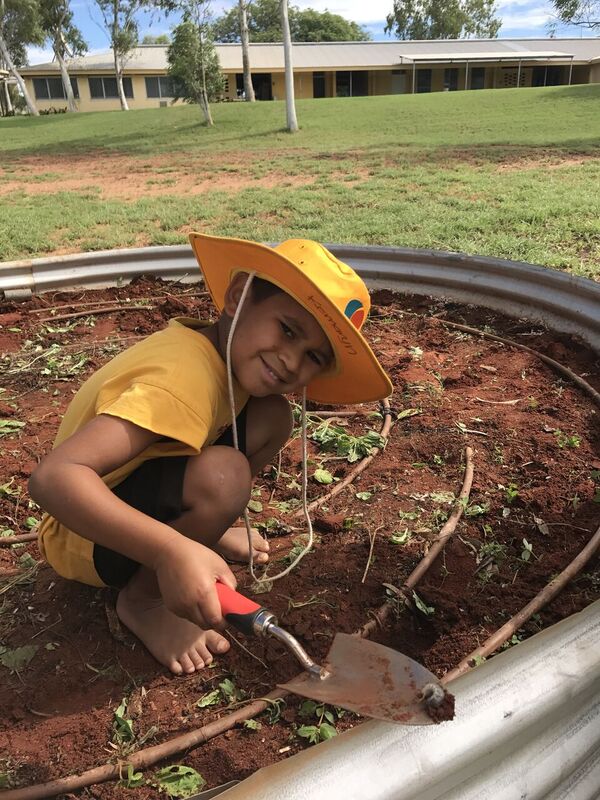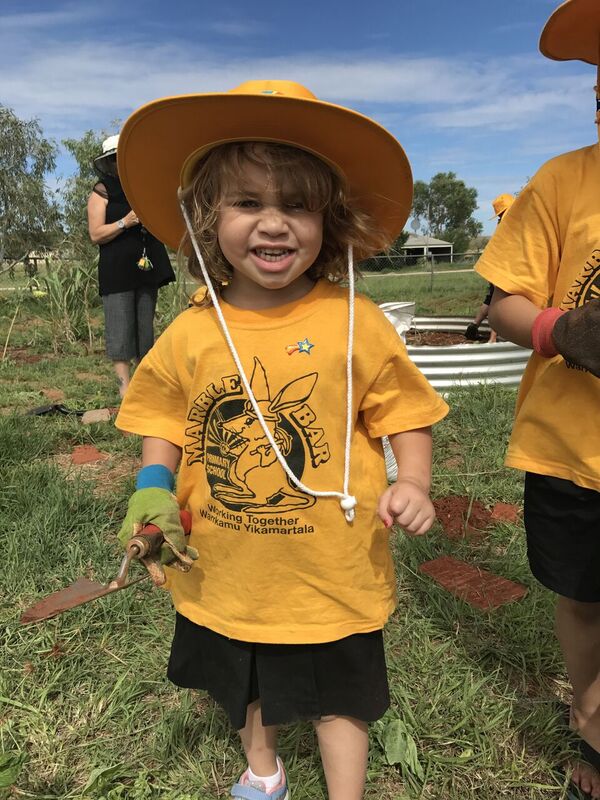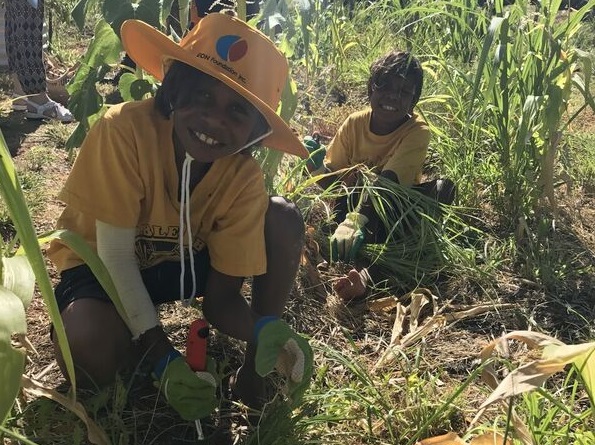Armed with their backpacks, they eagerly await their first day of school, only to find that when they cross their legs on the classroom floor, they can’t hear a word the teacher is saying.
As the days go by, the once buzzing students find it difficult to learn, lose self-esteem and begin to disengage.
Currently, teachers in remote areas across the country are equipped with microphones to communicate with hearing-impaired students in what can only be described as a short-term, ineffective solution to the issue.
The Edge Of Nowhere Foundation (EON), a not-for-profit organisation based in Western Australia, has decided to break through this vicious cycle by taking a more preventative approach in addressing health issues within remote Aboriginal communities.
EON co-founder Caroline de Mori explained that the foundation’s focus is on reducing the 20 per cent chunk of the Indigenous health gap which is caused purely by poor diet.
“We’re trying to address the things that are preventing Aboriginal children and their families from participating in a purposeful, healthy life,” she added.
During her career in public relations and corporate communications, Ms de Mori travelled frequently to regional Western Australia, getting to know the remote communities which dot the diverse land.
“I was becoming increasingly frustrated and ashamed of the statistics with regards to Aboriginal disadvantage, particularly Aboriginals living in remote communities, of which we have a couple of hundred in Western Australia,” she said.
“I felt that as a businessperson, I couldn’t do any worse than what was currently being done because the statistics were becoming more appalling.”
Founded in 2005, EON implements a grass-roots approach which focuses primarily on disease prevention and fostering healthy lifestyles by delivering the EON Thriving Communities Program.
Operating for around a decade, the program provides sustainable access to fresh produce in schools and communities and offers training in how to grow, harvest and prepare the produce to create healthy meals.
The program was the product of a partnership with Ernie Bridge, the first Indigenous Australian to be a Cabinet minister in any Australian government.
At the time of its inception, Mr Bridge and Ms de Mori were working together to conduct a type 2 diabetes prevention and management program in remote communities.
“While he was - quite rightly - teaching children and adults to eat less fat and sugar and improve their diets, I looked around and realised that access to fresh and affordable food was virtually zero,” Ms de Mori recalled.
“It’s one thing knowing you have to eat more fruit and vegetables, but if you haven’t got access to them then you can’t change anything.”
Just months after trialling the program in one area, EON was receiving requests from other communities across the Kimberly, eager to participate.
“It’s very visual; you start with a patch of dirt and within six weeks all of this wonderful food is growing,” Ms de Mori explained.
“It’s very easy for people to understand what the outcome is and that it’s achievable.”
The program is now implemented to tackle food insecurity and poor nutrition in 16 communities in Western Australia –13 across the Kimberley region and three in the Pilbara.
Though EON has helped thousands by bridging the health gap, it faces a daily battle with the challenges associated with working in the most remote locations imaginable.
“Most people who live in cities, or even towns, can’t grasp the isolation and the difficulties of living in a remote community that might be hours down a dirt road,” Ms de Mori said.
“There’s no Woolworths or Bunnings store down the road; it’s incredibly difficult and you can’t take anything for granted.”
Despite these obstacles, EON has managed to make a lasting contribution to some of the most isolated and impoverished Aboriginal communities, improving health outcomes, fresh food security, local capacity-building and better educational engagement.
According to an independent report, the EON Thriving Communities Program has resulted in an evident improvement in the horticulture and healthy eating knowledge and skills of children, while contributing to increased awareness of the link between fresh food, nutrition and good health amongst community members.
Twelve years after its fruition, EON seems to have become living proof that the most effective way to make a difference is by starting at the core of the issue and working with communities to achieve a desirable outcome.
To find out more about EON or to donate, visit the foundation’s website.

